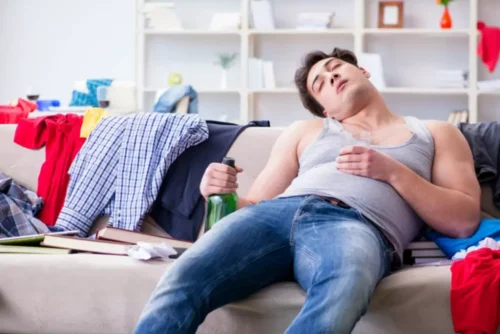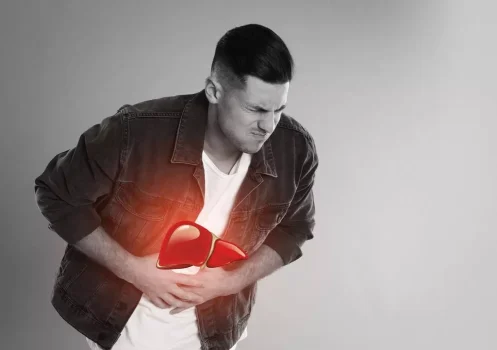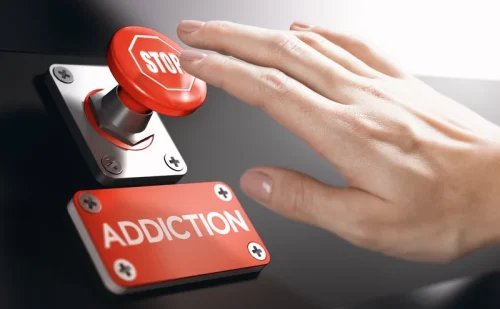
Data from a study of 53 patients who participated in alcohol treatment at a residential substance abuse program were consistent with this prediction (Kushner et al. 2005). Thus, among those 23 patients who had an anxiety disorder at baseline and remained abstinent after approximately 120 days, 61 percent no longer met criteria for an anxiety disorder at follow-up. Another study with 171 male veterans demonstrated that self-reported measures of temporary anxiety (i.e., state anxiety) decreased rapidly during inpatient alcohol treatment (Brown et al. 1991).
- Panic attacks are often mistaken for heart attacks due to chest pain symptoms.
- According to the DSM-5 TR, a person must regularly experience unexpected panic attacks to be diagnosed with panic disorder.
- Occasionally, Dr. Lin may recommend that additional therapy is needed and ask that you bring a therapist into your care team in order to provide the best outcome.
Alcohol Use and Co-occurring Disorders
This can be dangerously addictive if you have frequent anxious thoughts. This type of self-medication can lead to alcohol dependency and may result in regular, alcohol-induced panic attacks. It is very common for people who experience anxiety to self-medicate by consuming alcohol, which can offer a temporary fix. In fact, research suggests that around 25% of people with can alcohol cause panic attacks panic disorder also have an alcohol dependence. Alcohol may be a temporary, unhealthy way to relieve anxiety and forget about your underlying stressors; however, using alcohol does not erase these underlying triggers. Additionally, symptoms of anxiety will still be lurking around the corner as the underlying triggers have not been properly addressed and treated.
Why Do You Feel Anxiety After Drinking Alcohol?
If you have chest pain, trouble breathing or lose consciousness, seek emergency medical care. A panic attack causes sudden, temporary feelings of fear and strong physical reactions in response to ordinary, nonthreatening situations. When you’re having a panic attack, you may sweat a lot, have difficulty breathing and feel like your heart’s racing. A panic attack is a sudden episode of intense fear that triggers severe physical reactions when there is no real danger or apparent cause.
Sign up to learn more
Fortunately, the cycle of using alcohol to cope with anxiety can be broken. Cutting back on drinking can help reduce alcohol-induced anxiety, and give you the space and https://ecosoberhouse.com/ clarity to address a pre-existing anxiety disorder with healthier coping strategies. If you’re experiencing symptoms of panic disorder, talk to a health care provider.

It may also decrease your quality of life due to impaired social functioning. If you have panic attack symptoms, seek medical help as soon as possible. But panic attacks are hard to manage on your own, and they may get worse without treatment. The initial symptoms of anxiety and panic may be related to alcohol withdrawal. It could also be that alcohol use provides a mechanism for these disorders to develop. If you think you have a problem with alcohol, seek help from your doctor right away.


For example, they were less likely to speak up in group therapy, attend a 12-step meeting, or seek sponsorship within a 12-step group. In contrast, no differences in relapse rates were found among the men with or without social phobia in the study. Interestingly, socially phobic women were less likely than women without social phobia to obtain an Alcoholics Anonymous sponsor, which may help explain the poor outcomes for TSF among this subgroup.
Hypersensitivity is when a person is so sensitive to changes in their body that they can’t help but notice and be affected by them. Every day most of us experience minor aches, pains, heart rhythm changes, and so on. Most people barely notice them, or pass them off as if they’re not important.
- Data from a study of 53 patients who participated in alcohol treatment at a residential substance abuse program were consistent with this prediction (Kushner et al. 2005).
- Alcohol changes levels of serotonin and other neurotransmitters in the brain, which can worsen anxiety.
- Many treatment programs, as well as AA, heavily rely on the mutual help in group settings.
- The problems with quitting alcohol and anxiety start long before you decide to quit.
- Depersonalization can be described as feeling detached from oneself, or as if you are observing your own behaviors but not identifying with them.
The historical roots of this treatment modality largely can be traced back to the development of Alcoholics Anonymous (AA) in Akron, Ohio, in the 1930s and 1940s. It has been estimated that nearly 1 in every 10 Americans has attended at least one AA meeting, and it is “the most frequently consulted source of help for drinking problems” (McCrady and Miller 1993, p. 3). Taken together, the epidemiological and clinical literature describing the relationship between anxiety and AUDs shows that this comorbidity is both prevalent and clinically relevant. Therefore, it is important to enhance understanding of this comorbidity.